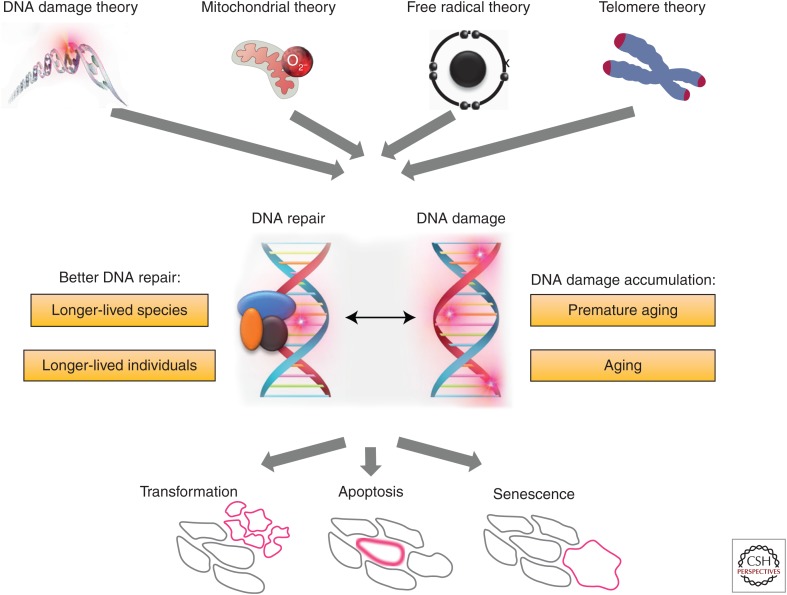Age and Aging
What is Age and Aging?
Oxford Language Definitions:
- Age (noun): The length of time that a person has lived or a thing has existed
- Aging (noun): The process of growing old
Age and Aging are two intertwined concepts within the field of Gerontology and the study of Aging.
Age itself has two distinct defintions:
- Chronological Age: The age of a person as measured from birth to a given date
- Biological Age: The age of a person's biology or body based on several biological markers.
The disinction between Chronological and Biological age is important because each
individuals
biology operates on its own timeline. Individuals age at different rates despite chronological age.
Another important distinction to make when discussing age and aging is the difference between Life
Span and
Health Span. Life Span is the length of time a person is alive, while Health Span is the length of
time a
person is generally in good health.
Health Span holds a very vague definition because what determines a person to be in good health
varies
between people and typically doesn't include acute illnesses.
Aging also holds simliar distinctions, with chronological aging covering the process of aging over
time.
Biological Aging covers the aging process in relation to changes in biological markers over time.
Why do we age? How does it work?
It is generally agreed that aging occurs due to accumulation of cellular damage that leaves fewer
and less effective or healthy cells in the body over time.
However, there are currently over 300 theories related to and on aging and how it occurs. Many of
the theories overlap, and it maybe that aging occurs due to a combination of the these theories.
Most cells in the human body are ephemeral and have a short lifespan. Within the human body,
Eukaryotic cells follow the cellular cycle where the cell grows, copies its DNA, then divides itself
resulting in two cells total. It is believed that cells typically have a
limited number of times that they can divide and replicate due to accumulation of damage overtime.
Mutations also can occur that can cause more damage to the cell. More the most part once a cell
degrades to a certain point it has instruction to stop replicating and die off. Several theories try
and explain different reasons behind
cellular degradation and aging.
Theories:
- Programmed Theory: Organisms are preprogrammed to age and have a limited lifespan in order to benefit future generations.
- DNA Damage/Repair Theory: DNA damaged in the replication process that is unrepairable by the human body contributes to accelerated aging via damaged cell creation.
- Free Radical Theory: Mitochondria damage overtime leads to Reactive Oxygen Species leaking into the body, which is harmful and can increase rates of aging.
- Telomere Theory: Improper maintainence or shorterning of telomeres results in cellular senescene and the breaking down of cell functions.
- Senescence Cell Stress: The development and build up of senescence cells, cells that are damaged and can't replicate or die.

Additionally, there are three types ways a cell can die or be recycled: apotosis, necrosis, and
authophagy
Apoptosis is a highly regulated and controlled process in which internal or external cell signals
can trigger a cell to initiate this cellular death through enzymes spliting proteins within the
cell.
Necrosis is a form of cell injury that results in the premature death of cell. This type of cellular
death is typically unwanted.
Autophagy is the natural and conserved degradation or breaking down of cells to remove unecessary or
dysfunctional components and recycle cells. Nutrient starvation or fasting can possible trigger high
levels of autophagy in the body.
If any of the three types of cellular deaths are defective in the body, this can lead to more bad
cells staying within the body, replicating or harming unhealthy cells. This is another possible
reason for aging.
Overall, aging occurs because our body is continually fighting to maintain homeostatisis but
cellular damage continuously occurs that degrades our cells over time. There are multiple theories
around why we age and most focus on the different rates at which our cells age. It is generally
accepted that aging and degradation of cells is inevitable and most studies are focusing on life
span of healthy cells and how to extend it.
Is it possible to accelerate Aging? Is it possible to slow Aging?
It is possible accelerate aging through increasing cellular stress. Those who engage in unhealthy lifestyles for prolonged periods of time tend to exhibite accelerated age rates. It is possible to slow the aging process as well. Avoiding cellular stress through healthy lifestyle choices is a simple and easy way to do so. Drugs and other medicines are also actively being researched to address aging and biologial malfunctions and defects.